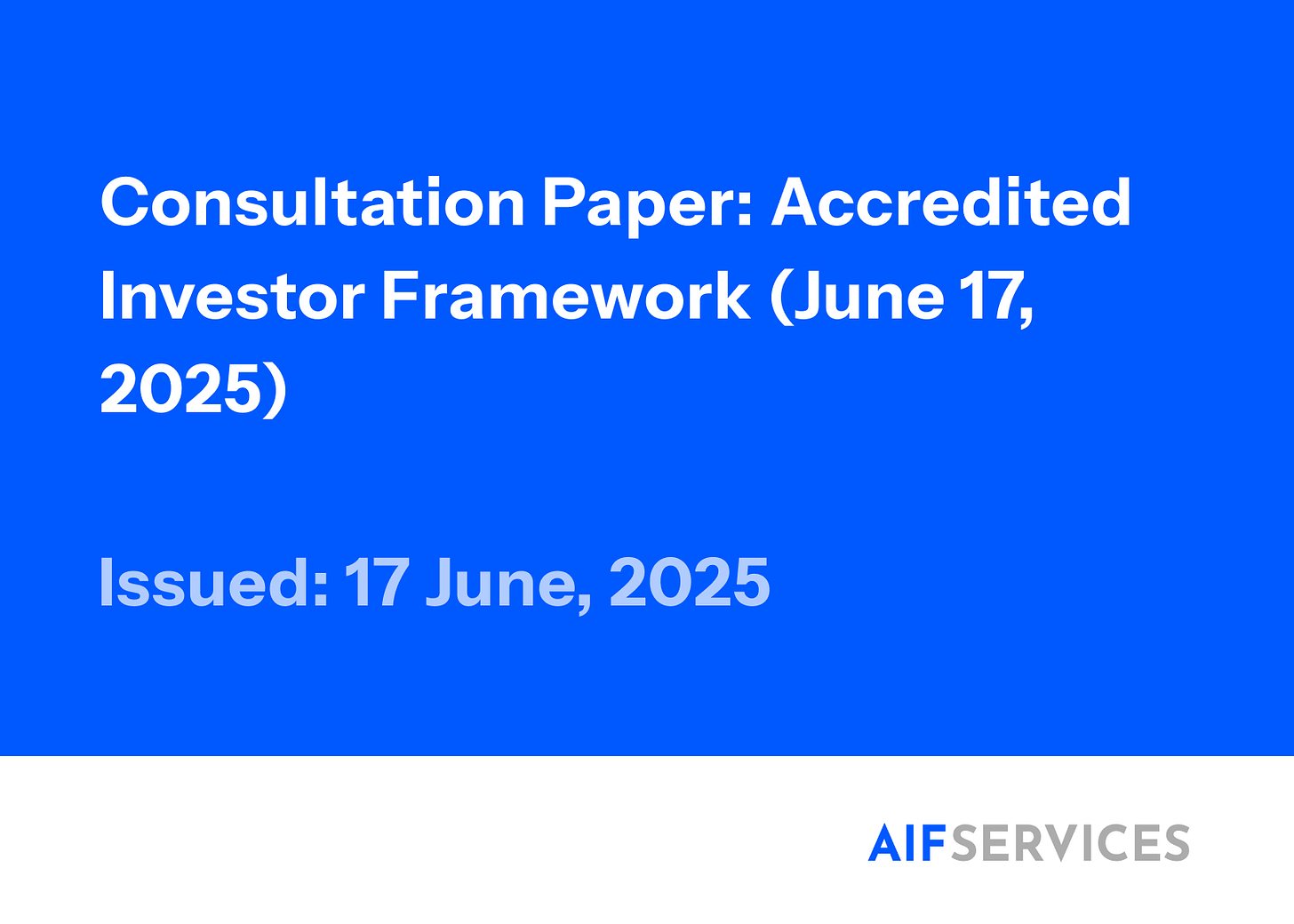Applicability: All entities issuing or managing AIFs (particularly AIF managers) and AIF investors seeking accreditation.
Background: SEBI introduced the accredited investor framework in 2021 (for Angel Funds and others) and simplified it in Dec 2023. Currently only stock exchange/depository subsidiaries can be accreditation agencies, and AIF investors must be certified by these agencies (CVL, NDML) before entry. Market participants (through the AIF industry and working groups) have suggested leveraging existing intermediaries to speed up onboarding.
Summary: SEBI issued a consultation to “extend flexibilities under the accreditation framework.” The two main proposals are: (a) allow all SEBI-registered KYC Registration Agencies (KRAs) to act as accreditation agencies (instead of only two current affiliates); and (b) permit AIF managers to provisionally onboard accredited investors based on their own due diligence, subject to later certification confirmation. Comments were invited until July 8, 2025.
Key Update: Proposed changes include expanding accreditation agency eligibility to all registered KRAs (broadening from only exchange subsidiaries), and allowing managers to “provisionally onboard” an investor as accredited based on fund manager checks, pending final certification by an agency. This would eliminate duplication of documentation and speed up investment entry.
Important Dates: Consultation paper issued June 17, 2025; deadline for comments July 8, 2025.
Effective Date: N/A (subject to final rulemaking after consultation).
What Remains Unchanged: The need for a formal accreditation certificate remains; no change to qualification criteria for investors themselves. Investors would still require a valid accreditation certificate before a fund can legally accept their investment. The role of accreditation agencies (once eligible KRAs) and investor eligibility criteria are not altered (only the process is).
Why This Matters: If adopted, these measures would make it easier to onboard sophisticated investors. Allowing KRAs (which already handle KYC) to certify accreditation and letting AIF managers initiate the process reduces delays and costs. Fund managers can use their existing due diligence and investor knowledge to streamline approvals. This should facilitate faster fund-raising and capital deployment while retaining a third-party certification safeguard for investor protection.
SEBI’s Statement: The consultation notes that moving accreditation to KRAs would “ensure stronger oversight” and that manager-led provisional onboarding would “reduce duplication of effort”. SEBI emphasizes the goals of streamlining the process and enhancing ease of doing business in the AIF ecosystem.
Discussion about this post
No posts



